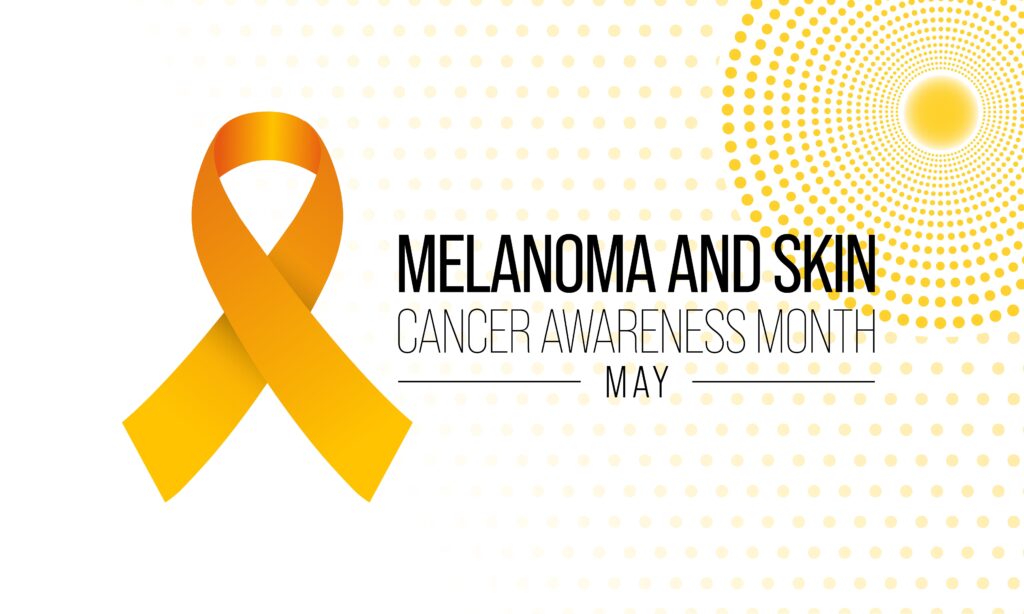May is Melanoma and Skin Cancer Awareness Month, a time to highlight the importance of protecting our skin and understand the signs and symptoms of skin cancer.
Skin cancer is divided into two categories: melanoma and non-melanoma skin cancers. Excessive exposure to ultraviolet (UV) radiation in most cases causes melanoma, the most deadly type of skin cancer.
Skin cancers, including melanoma and basal and squamous cell carcinomas, are among the most common types of cancer. The good news is that skin cancer is one of the most preventable cancers. By sharing facts about the dangers of unprotected sunbathing and encouraging people to look at the warning signs on their skin, we can and will save lives. To reduce the risk of skin cancer, protect your skin from sunlight and avoid indoor tanning.
Doctors and scientists always search better ways to treat people with non-melanoma skin cancer. Clinical trials are ongoing for all types and stages of non-melanoma skin cancer. Many people focus on new treatments to find out if a new treatment is safe, effective, and possibly better than existing treatments. These types of studies evaluate new drugs, different combinations of treatments, new approaches to radiation therapy or surgery, and new treatments.
Melanoma peptide vaccines are being evaluated in clinical trials in patients with localized and advanced melanoma. Research has shown that vaccination can absorb the immune system to fight melanoma, even in advanced disease, but these treatments are still experimental.
Please contact us at bd@gctrials.com or submit RFP via https://gctrials.com/request-for-proposal to find out more about GCT experience in Oncology and Dermatology and how we can assist you in conducting melanoma and skin cancer clinical trials.
